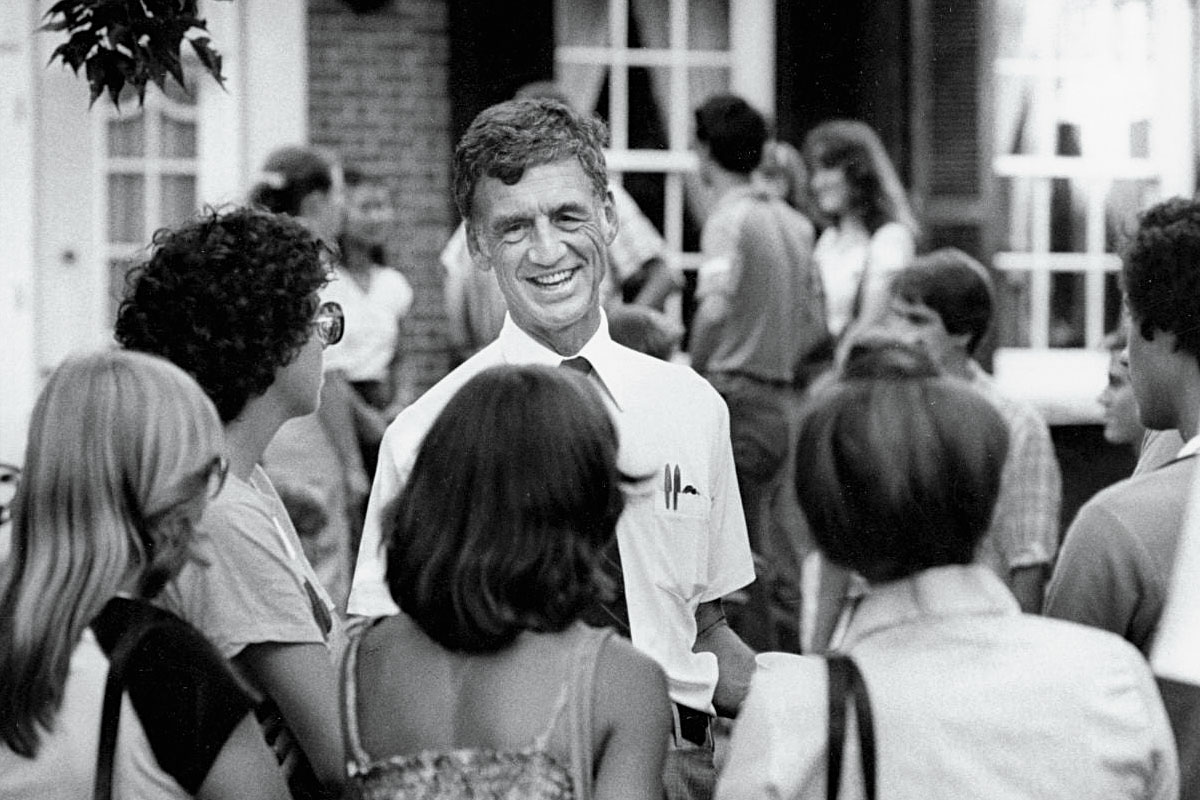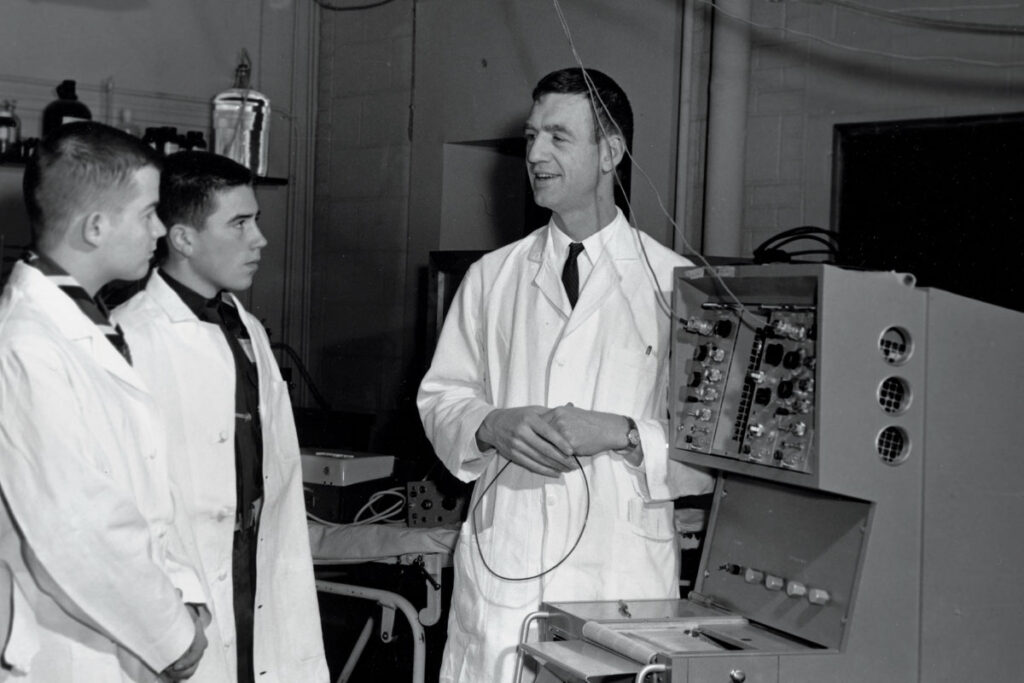
During his long affiliation with Washington University, William H. Danforth, MD, was known as someone who fostered good in the people around him.
Editor’s note: William H. Danforth II, MD, chancellor emeritus of Washington University, died at his home on Wednesday, Sept. 16, 2020. He was 94. Below, he is remembered by David H. Perlmutter, MD, executive vice chancellor for medical affairs and the George and Carol Bauer Dean of the School of Medicine. To read more about Danforth’s legacy and reflections from the university community, visit: rememberingbilldanforth.
Most people know Bill Danforth as one of the longest-serving university chancellors in the country, and as a dedicated civic leader and philanthropist, but for me, Bill Danforth was first and foremost a physician and a scientist. These early choices — to go to medical school, to start his professional life as a physician in the Navy during the Korean War, to return to St. Louis to join the Washington University cardiology faculty — were the first in a series of decisions that had as their common denominator the desire to help people, to be of service to his fellow man and to his nation, and to leave our university, our city, and the world better than he found them.
As he served first as executive vice chancellor of medical affairs for years before taking on the chancellor experience, Bill had a deep understanding of the unique and complementary strengths of the two campuses. In both roles he worked to bridge both the geographic and cultural divides that inevitably arise between medical schools and the rest of the university. He knew that Washington University would only be as strong as its weakest link and also knew that a strong medical school would strengthen the rest of the university, which in turn would strengthen the Medical Campus — a virtuous cycle.

A cardiologist by training, Bill Danforth joined the School of Medicine faculty in 1957.
As chancellor, he increased funding for basic and medical research, laying the foundation for so many of the School of Medicine’s incredible achievements. I feel his impact every day in the depth of talent and intellectual activities that have distinguished our school and our university. It could only have happened from decades of Bill recognizing, nurturing and empowering the right people and as a result of his firm devotion to the importance of quality in thinking. On more than one occasion he talked with me about his deep belief in “academic decision-making” and somehow, I knew that meant that consideration of what was good for our core missions — patient care, education and research — had to be a part of every decision.
I was so fortunate to have had some time with him over these last several years, moments that I will always treasure. One night we had several minutes alone before a big dinner event. I was recounting some of the things that I had learned from my mentors and we landed on a discussion of how important it was to encourage “big” thinking. He told me that when he was a boy, his grandfather asked him to get the dictionary and find the page with the word “impossible.” And then he was told to tear that page out and throw it away.
He understood that in an academic setting, and in a city, change for the better takes time, patience and perseverance to build a community and a culture with a shared sense of direction and aspirations.
In a word, his was leadership based on commitment. A commitment that began in the halls of the Medical Campus when he decided to pursue a profession that is all about helping one’s fellow human beings, and one that took as its specific, fortunate object our university and its place in our region. He understood that commitment means believing that there is no limit to what you can accomplish and that, at the same time, accomplishment is always incremental, that we must strengthen and take seriously every individual and every school that together make our institution great. He put in the time and the commitment, and we are all the better for it. Bill Danforth was tall in stature and presence but gigantic in impact. It is hard to fathom how one person could have fostered so much good in the people around him. His style of leadership and the mark he made on this university live on in all of us.
— David H. Perlmutter, MD
Published in the Winter 2020-21 issue





 Share
Share Tweet
Tweet Email
Email